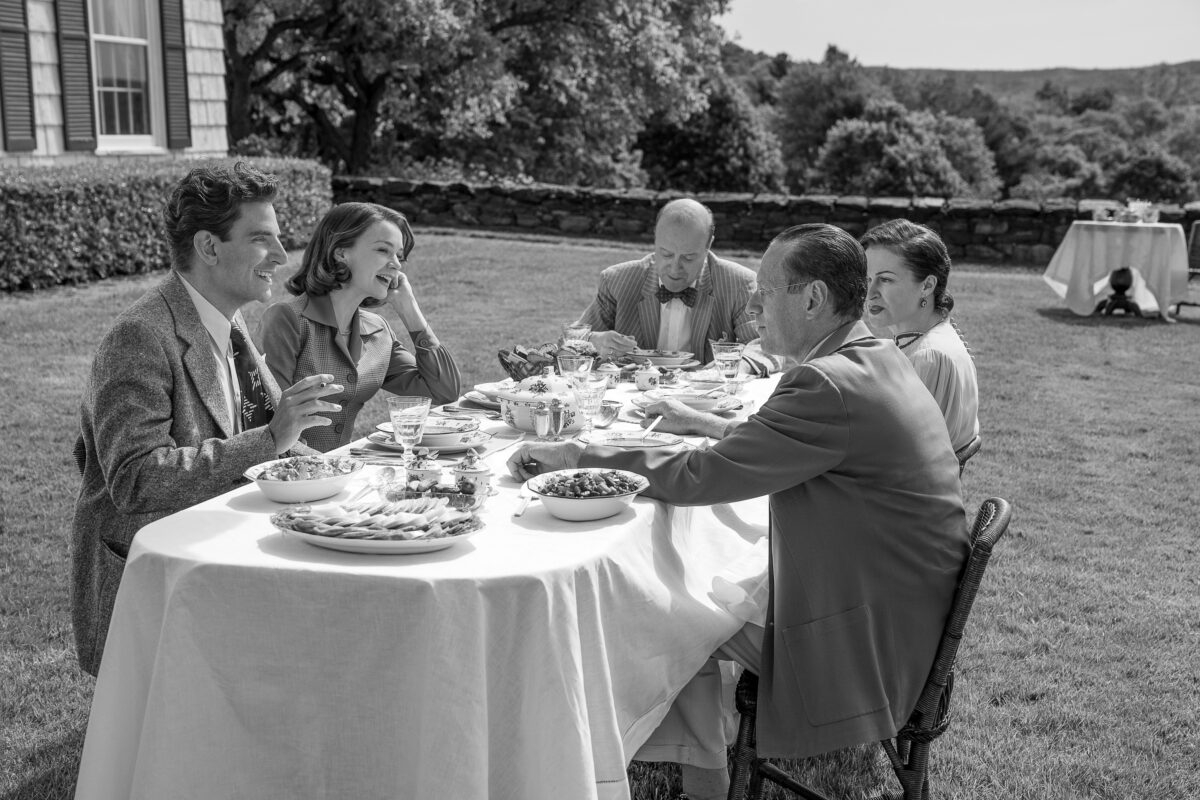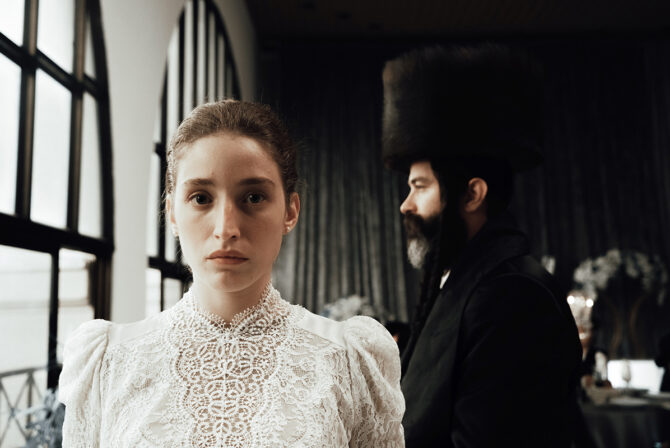I knew I’d be charmed by “Maestro.”
I’ve been around the block with this man, this Bradley Cooper, before. And by around the block I mean I paid good money to watch his films in theaters for decades. I know he’s impossibly talented and charming. I’ve watched “A Star Is Born.” I understand he has the chops to make blockbuster films that are also soulful and artful. I know that he’s particularly good at playing flawed men, led by their egos and passions, men that you end up both feeling for and judging. I knew what I was in for, and I got it.
And by “it” I mean a movie about Leonard Bernstein (pronounced SH-TEYN! SH-TEYN!) that made me fall in love with the work of the legendary conductor and composer all over again, that made me appreciate a complex and human genius, and that allowed me to learn about his wife, Felicia Montealegre, played by Carey Mulligan, and admire her all the more. Their love affair both swept me and tore me up as we saw Bernstein with his lovers, first Matt Boomer as a devoted David Oppenheim, then Gideon Glick as the spritely magical Tom Cothran, the man who Lenny left Felicia for — in a way. I loved the way, despite omitting so much of Bernstein’s life, “Maestro” still feels like a complete, all encompassing biopic.
我也得到了音乐我期望:电影的声音track is almost exclusively made up of Bernstein’s original scores, which provides a chance for a younger generation to discover them and for an older generation to re-luxuriate in the beauty for almost two hours.
But I also got some things I didn’t expect. I loved the way that “Maestro” paints the relationship between Bernstein and his children, particularly his eldest daughter, Jaime, played by Maya Hawke. I was completely charmed by Sarah Silverman as Shirley, Leonard’s sister, a woman who is a kind of meditator between her brother and Montealegre but also a dear friend to the latter, someone who cares for her happiness more than anything. I wanted even more of her and that delicious East Coast Jewish feel — a woman who felt powerful and kind all at once, a successful producer in her own right.
I also loved way Jewishness was broached in the film. It wasn’t particularly harped on, but it was there, in the background of many dynamics. It was there in that first meeting between Montealegre — or rather Montealegre Cohen — and Bernstein, in which they talk about how they define their fragmented roots, and how Bernstein defied the desire of his father, who feared he’d end up a “klezmer player” performing for “kopeks in a street corner.” Bernstein’s apartment offers a haven for Jewish creatives, from his lover David to Aron Copeland and Jerry Robbins, Adolf Green and Betty Comden.
Judaism is also broached in a conversation with conductor Serge Koussevitzky, who tells Bernstein that he should change his name to Burns for a reason we Jews know all too well. “To a Bernstein they will never give an orchestra, but to a Burns…” the Russian Jewish immigrant suggests, though unsuccessfully. “I had decided to make it as Leonard Bernstein or not at all,” he later told Koussevitzky.
There is a scene in which Bernstein wears a sweater of his alma matter, Harvard, with the university’s name written in Hebrew (it is a real sweater he wore during a rehearsal for Harvard’s 500th reunion.) There’s also a delightful anecdote of Bernstein stealing the scene at someone else’s bar mitzvah. And the movie ends with the sounds of the Maestro’s Symphony No. 3, the Kaddish.
The Jewish representation in this movie feels like, more than anything, that of the lived, Jewish American experience — casual while ever present, but not always explicitly there in our day-to-day lives. There is the desire to be different than your Jewish parents — their “puritanic origins,” as Bernstein describes both his and Montealegre’s folks — and there is the draw, always, of Jewish roots, to be “steeped in Talmud,” as Montealegre describes Bernstein in one early scene.
Sure, Jewish viewers would’ve relished a movie with even more of themany Jewish details of Bernstein’s life,但有许多细节在属他的生活l that are absent from the film, from his political activism to some of the specificities of his relationships with men. At the end of the day, Cooper wanted to make a film that was more felt than intellectualized; there are lots of moments of just being with the music, in which faces and bodies and breaths tell more of the story than actual words.
Andthe nose? In motion, with the rest of Cooper’s striking face as he embodies Bernstein, the prosthetic nose didn’t really stand out to me in the way it did in those select stills that stirred up controversy earlier this year. It’s still a bit jarring in certain scenes, especially in Bernstein’s younger days when the prosthetics are otherwise more subtle on his face. But in general, the make-up in the movie feels mostly natural and convincing.
As one Jewish critic of the nose debacle decried, we have real antisemitism in America, so why do we go on and on about one well-intentioned, approved-by-the-Bernstein family prosthetic nose? I think the conversation about authentic casting and the sensitive portrayal of Jewish characters is still worth having. Just because Bradley Cooper andHelen Mirrenhave successfully taken on Jewish roles and, perhaps more pragmatically, help get certain movies made more easily because of their big names, is still one worth having. We can kvetch about small details that matter to us as a minority in this country — and that doesn’t take away from the fact that there are bigger issues for us to care about.
Still, as a Jewish person in America, I feel particularly grateful that Cooper made this reverent, generously loving film about a Jewish legend so worth remembering.
At the end of “Maestro,” as often happens at the end of a great biopic, I wanted to stay. Stay with the fiery, passionate, sweaty gaze of Cooper’s Leonard Bernstein as his whole body and soul engaged in conducting music like Moses drawing water from the rock, a miracle of miracles. I wanted to stay with the story of a man who struggled with love, and who loved so greatly. I wanted to stay with the soothing voice of Mulligan’s Montealegre. I wanted to stay in a world of music and talented creatives.
As a Jewish person in the winter of 2023, I so needed the comforting world of “Maestro.” I was glad that it kept a soft, natural touch on his Jewish identity. It let the movie transport me during a time I so badly needed to be transported.








